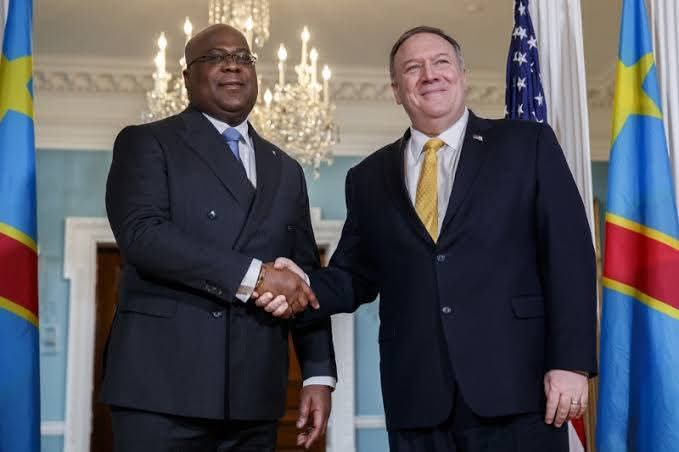PRESIDENT Felix Antoine Tshisekedi of the Democratic Republic of Congo (DRC) will launch a unity government, his spokesperson said on Saturday, as he faces domestic pressure over his handling of an offensive by Rwanda-backed M23 rebels in eastern provinces
The move is coming on the heels of an offer by Mr Tshisekedi to the United States and Europe a stake in his country’s vast mineral wealth, a sector currently dominated by China.
The M23’s capture of swathes of eastern Congo and valuable mineral deposits has fanned fears of a wider war and provoked some members of the fractious opposition to openly predict his presidency will not last.
On Saturday, Tshisekedi told a meeting of the ruling Sacred Union coalition not to be distracted by internal quarrels: “We must unite…let’s stand together to face the enemy.”
Presidency spokesperson Tina Salama said Tshisekedi would form a government of national unity and make changes in the leadership of the coalition, without giving further details.
Since the start of the year, Congo has faced back-to-back losses in North and South Kivu provinces, fueling criticism of the authorities’ military strategy.
“His management is one of the causes of the current crisis,” said opposition figure Herve Diakiese, criticising the move to form a unity government.
“Tshisekedi is more concerned with saving his power, whereas we are more concerned with saving the Congo, and this can be done with or without him.”
Congo is considered to be among the world’s wealthiest countries in terms of natural resources. It provides much of the world’s coltan, which is used to power smartphones and computers. It also holds more than half the world’s cobalt reserves, used in electric vehicles.
Mr Tshisekedi seemed eager to capitalise on this as he tries to manage a conflict he says is similar to Russia’s invasion of Ukraine. Mr Tshisekedi has pinned his hopes on Western pressure against Rwanda, calculating that major investments in Congo — including a possible minerals deal — would bring his country much more security and stability.
China currently has far greater access to Congo’s mineral wealth than the United States, while the European Union has negotiated with Rwanda, agreeing to give it about $935 million in return for access to minerals like tin, tungsten and gold.
Eighteen-Eleven Media


